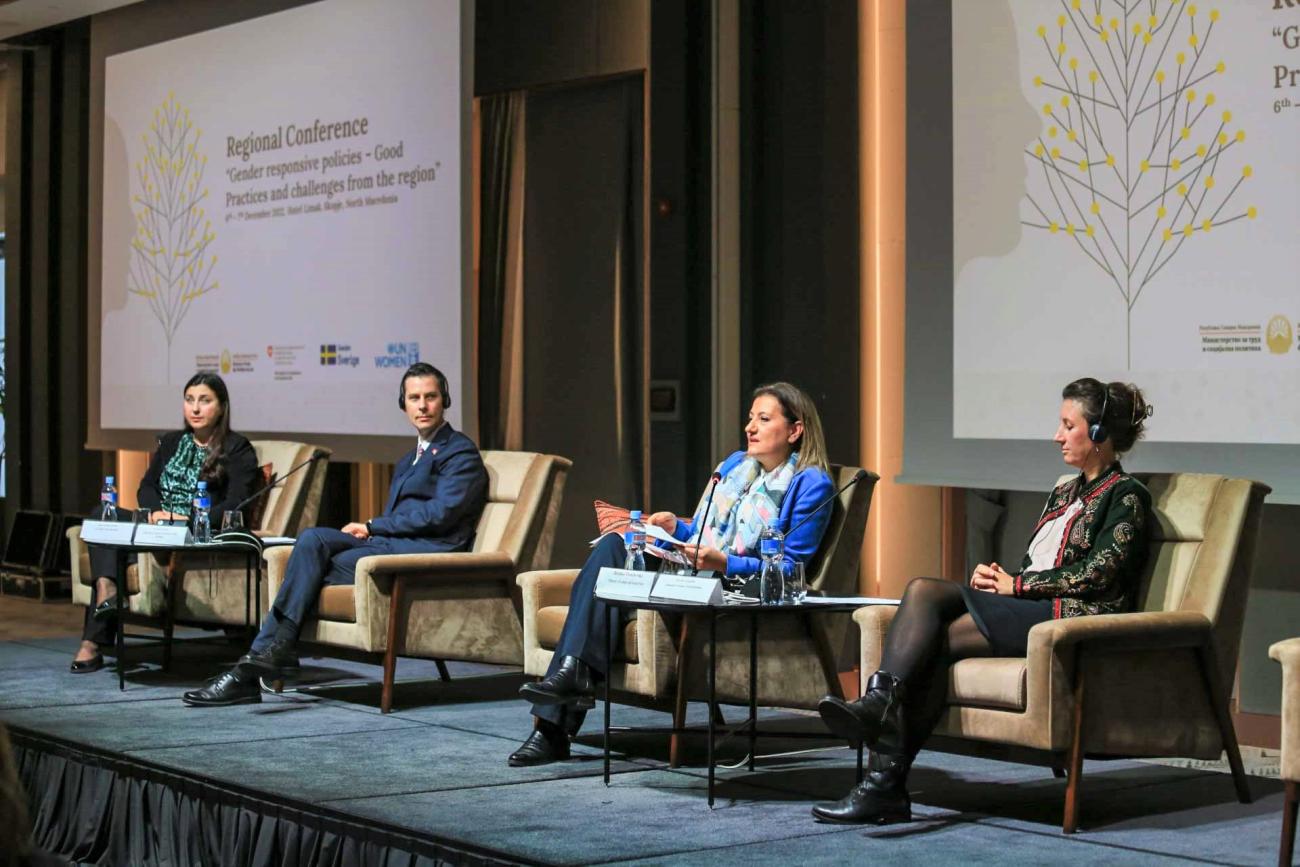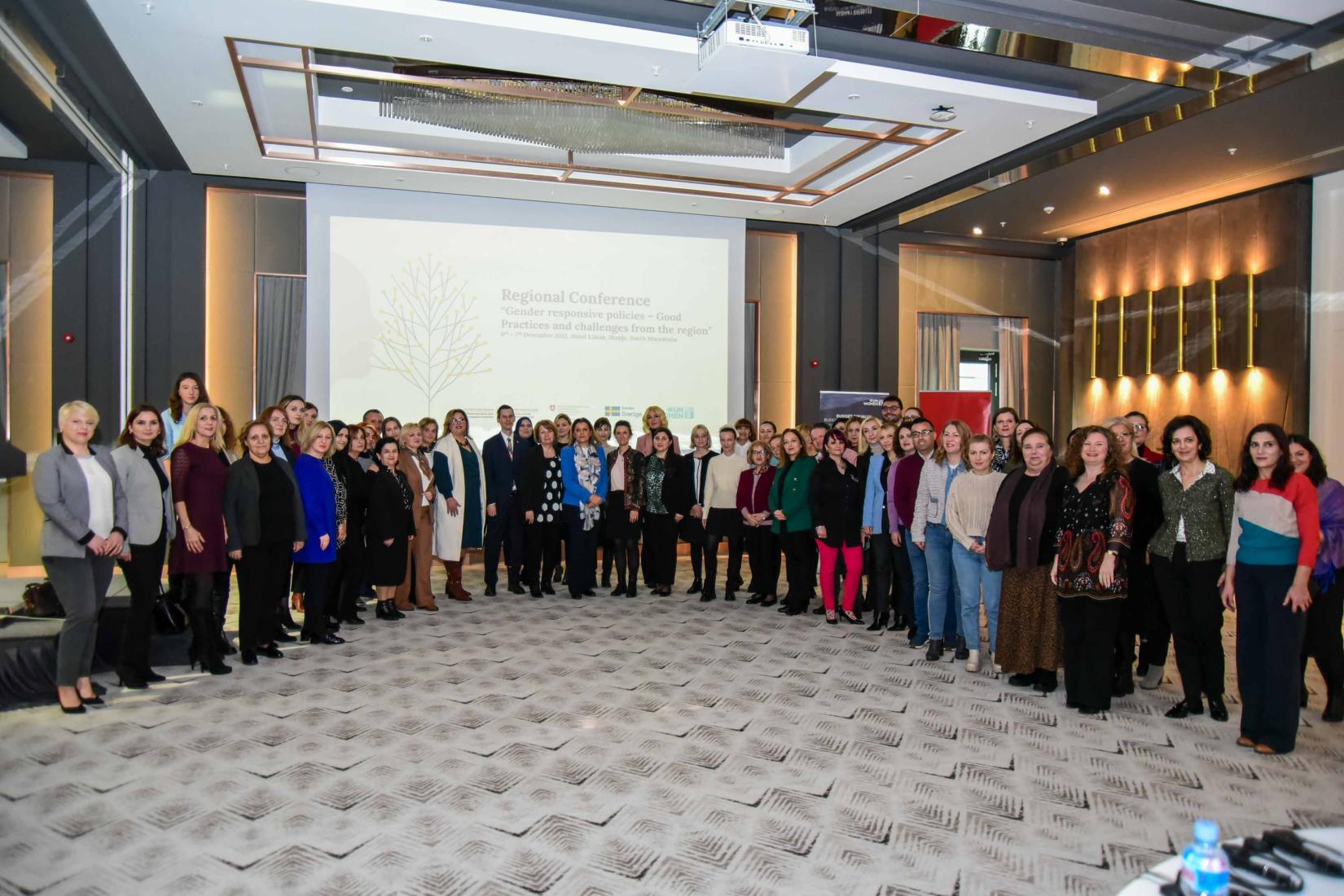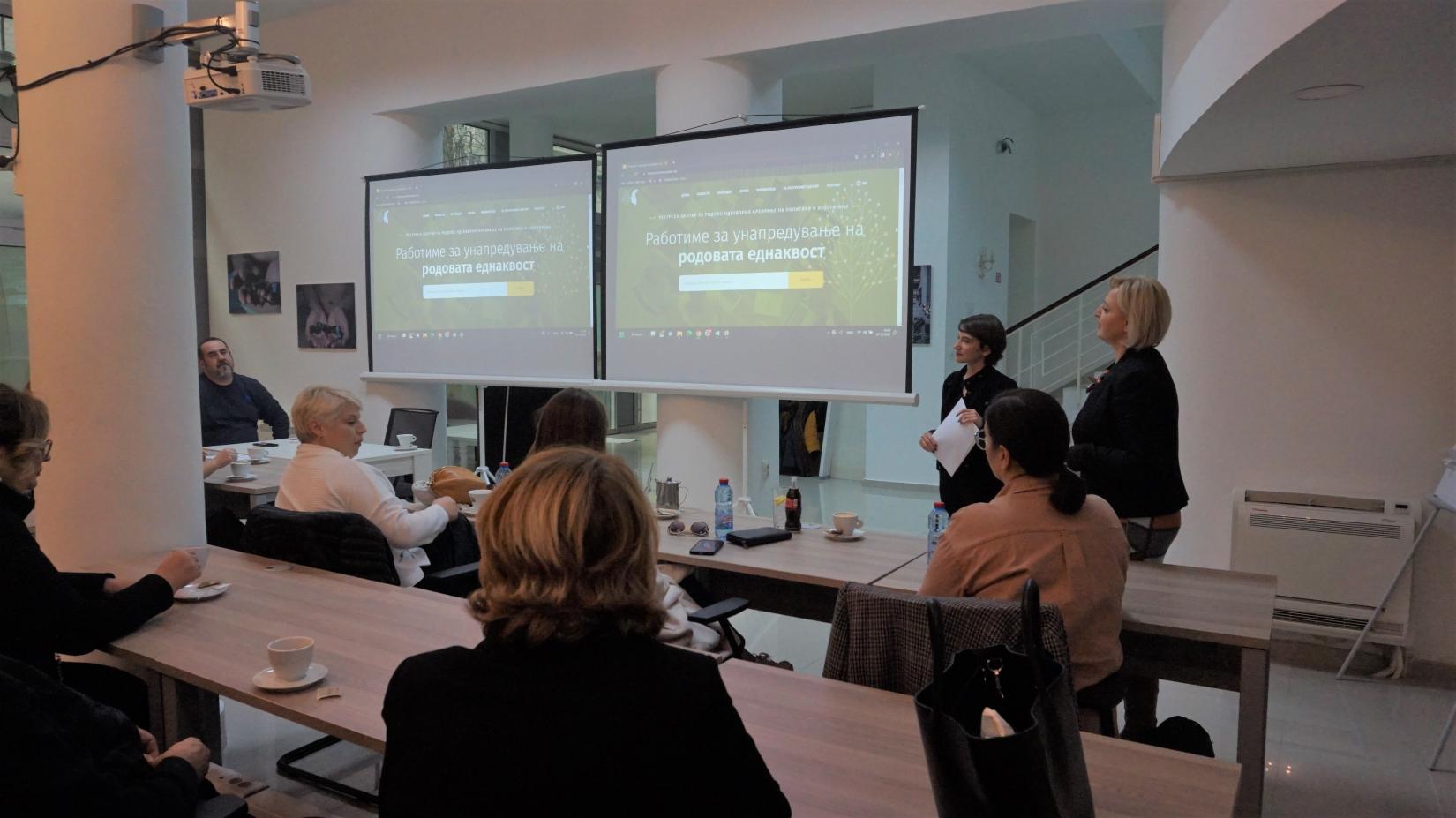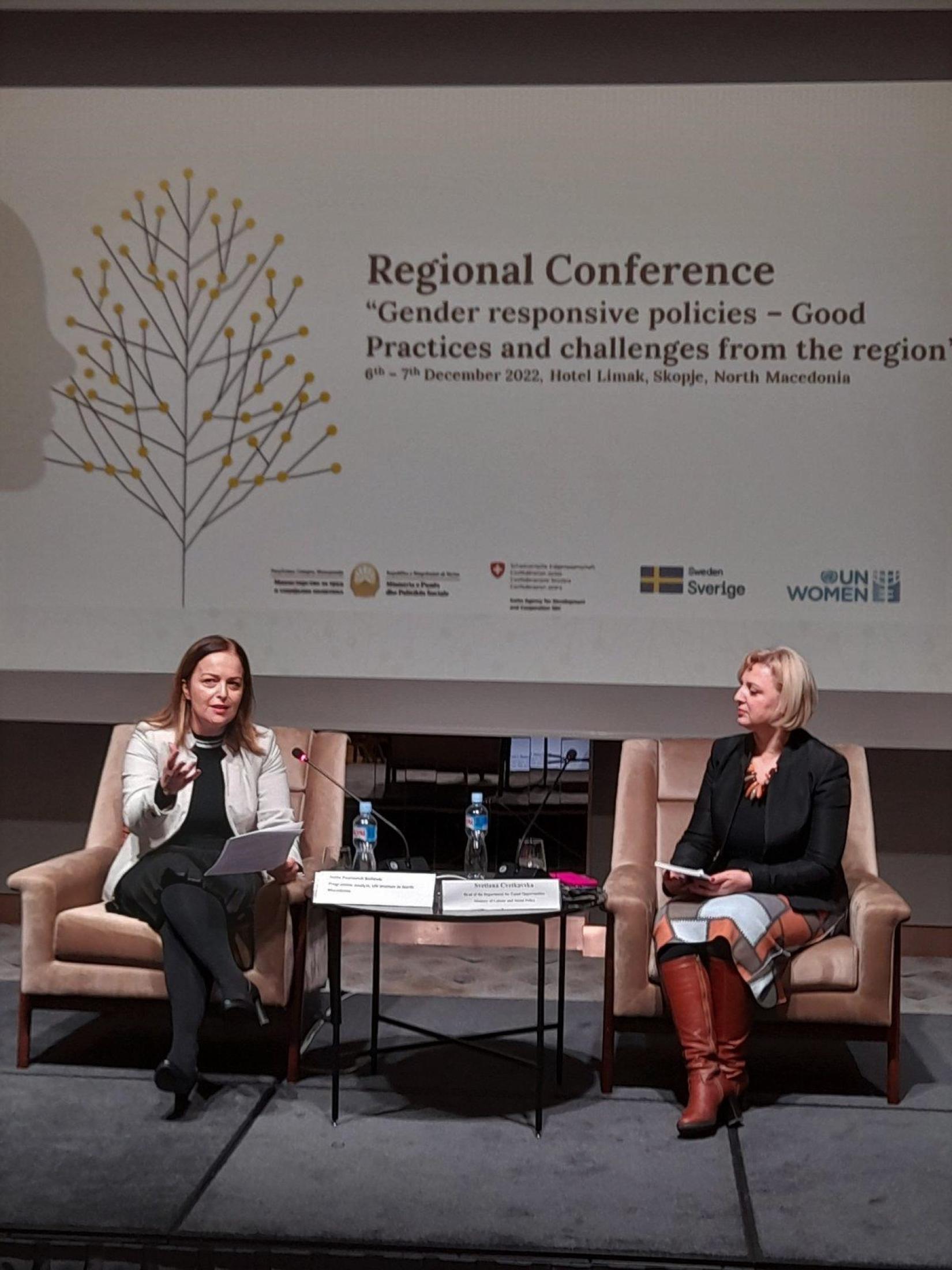Gender Responsive Policies – good practices and challenges from the region

The Ministry of Labor and Social Policy with the support of UN Women Skopje organized a regional conference on gender responsive policies.
The impact of the socio-economic crisis on women and men, good practices for including the gender perspective in sectoral policies and gender-responsive budgeting in the region - were central topics of the two-day regional conference organized by the Ministry of Labor and Social Policy with the support of UN Women Skopje and funded by Sweden and Switzerland - longstanding supporters of gender-responsive policy making and budgeting in North Macedonia.
“Our common goal is to place gender equality and gender sensitivity as the highest priority in the policy-making processes”, emphasized the Minister of Labour and Social Policy, Jovanka Trenchevska in her opening address at the conference on gender responsive policies which was held in hotel Limak in Skopje. Many professionals leading gender equality efforts in the region, including government officials and members of civil society organization were discussing the impact of socio-economic crises on women and men and the importance of mainstreaming gender in the measures to mitigate the negative impact in the countries of the region. Key issues that were highlighted in the first part of the conference include prevention and protection from gender-based violence, increased unpaid work which disproportionately affected women and lack of women’s participation in planning and in decision-making processes during the crises.

The conference also provided opportunity for exchange of experience and good practices in mainstreaming gender in sectoral policies and programmes and gender responsive budgeting, as a strategy to address gender inequalities in the region. Successful examples can be a base for systematic improvement in other countries. While discussing challenges and factors of success, the participants pointed out that UN Women plays a significant role in supporting the institutionalization of gender responsive budgeting, but the political will and technical capacities are decisive for successful implementation and adequate resource allocation. One of the main challenges is the monitoring of the progress against global standards such as SDG 5.c.1 which measures the progress that countries are making towards establishing systems for tracking budget allocation for gender equality.
As a final activity at the conference, participants visited the Resource Center on Gender Responsive Policymaking and Budgeting, established with support of UN Women Office in Skopje in March this year, which is the first knowledge hub and repository of best practices on GRB in the country and the region.
Read more: https://bit.ly/3Pt6ohs







